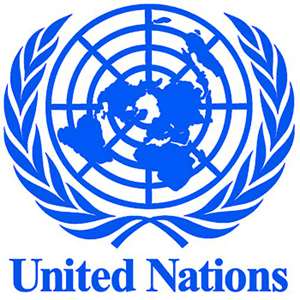
CAIRO, Egypt, September 20, 2012/African Press Organization (APO)/ -- Farmers who are members of the Assiut-governorate-based Al Badary Farmers' Association now have great hopes of exporting their produce of pomegranates to international markets, after the recently conducted pesticide residual tests in Spain's AGQ Labs proved that 85 percent of the sample pomegranates, produced by 20 small farmers from Assiut, are of high quality and are compliant with European Union regulations.
The farmers received extensive technical support from the “Pro-Poor Horticulture Value Chains in Upper Egypt” programme. The programme, widely known as 'SALASEL' (an Arabic term meaning chains) is a major UN joint effort financed by the Spanish Millennium Development Achievement Fund.
Four UN organizations are involved in the SALASEL joint programme, namely; the United Nations Development Programme (UNDP), the United Nations Industrial Development Organization (UNIDO), the International Labour Organization (ILO), and UN Women. The UN agencies are partnering with the Ministry of Foreign Trade and Industry as well as the General Authority for Investment (GAFI) with an aim to boost Egyptian exports and introduce new industries to the region.
“The 'SALASEL' Joint programme is designed to help small farmers grow quality crops for industrial uses and for export,” says the Joint Programme Manager Wael Rafea. “The fact that Egypt has already reached high levels of pomegranate production makes it a major crop that we should target for upgrading. This could help hundreds of small farmers in Upper Egypt.”
In Upper Egypt, and specifically in Assiut, farmers cultivate pomegranate shrubs in over more than ten thousand feddans, making it the highest pomegranate growing concentration in the world. The fruit with its fleshy sweet red, yet lightly acidic, arils has a growing international market. Its seeds and even its thick reddish skin are widely used in the pharmaceutical and dyeing industries.
The high level of production across the region makes pomegranates a major strategic crop for Egypt with a high potential for export. However, the heavy use of pesticides and outdated pruning techniques had largely restricted its export.
“This is a major breakthrough,” says SALASEL's Head of the Technical Experts Team and Deputy Joint Programme Manager Bahaa Ismail, noting that the joint programme also offers farmers marketing support. “The results for this leading group of farmers and the looming export opportunities will encourage hundreds of other pomegranates farmers to follow suit,” he adds.
“At the beginning, we started working with 70 farmers, only 20 of which closely followed our guidance,” explains Araby Fadl, SALASEL's Integrated Pest Management consultant. “Although there is a strong cultural resistance for new techniques and practices among farmers, we anticipate working with, literally, hundreds of farmers during the coming season after they witness the success and results.”




 Avoid pre-registered SIMs, buyer and seller liable for prosecution – Ursula Owus...
Avoid pre-registered SIMs, buyer and seller liable for prosecution – Ursula Owus...
 Election 2024: Mahama has nothing new to offer Ghanaians, Bawumia is the future ...
Election 2024: Mahama has nothing new to offer Ghanaians, Bawumia is the future ...
 OSP files fresh charges against ex- PPA Boss
OSP files fresh charges against ex- PPA Boss
 Withdraw unreasonable GH¢5.8m fine against former board members – ECG tells PURC
Withdraw unreasonable GH¢5.8m fine against former board members – ECG tells PURC
 Akroma mine attack: Over 20 armed robbers injure workers, steal gold at Esaase
Akroma mine attack: Over 20 armed robbers injure workers, steal gold at Esaase
 Those who understand me have embraced hope for the future — Cheddar
Those who understand me have embraced hope for the future — Cheddar
 Ghana will make maiden voyage into space should Bawumia become President — Chair...
Ghana will make maiden voyage into space should Bawumia become President — Chair...
 Train crash: Despite the sabotage, we shall not be deterred and will persevere —...
Train crash: Despite the sabotage, we shall not be deterred and will persevere —...
 Tema-Mpakadan railway project a perversion of the original viable concept design...
Tema-Mpakadan railway project a perversion of the original viable concept design...
 Train crash: Elsewhere, everyone involved in the test will either be fired or re...
Train crash: Elsewhere, everyone involved in the test will either be fired or re...
